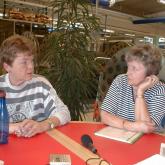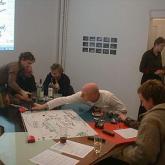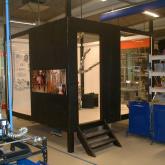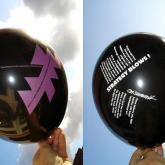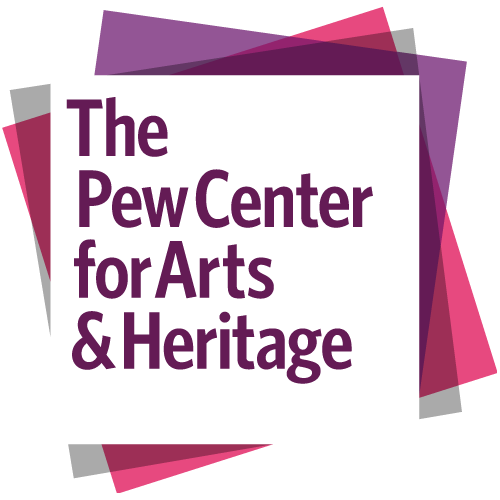Week 19: Democratic Innovation
Hi Everyone,
This Tuesday is another event in a year-long series of weekly conversations and exhibits in 2010 shedding light on examples of Plausible Artworlds.
This week we’ll be talking with Kent Hansen from the Copenhagen-based initiative, Democratic Innovation.
Several times in previous weeks’ discussions, the question of democracy has come up — as an aspiration, a modus operandi, an exigency, but most often as stemming from a desire for a more inclusive aesthetics of decision making. There isn’t much substantive democracy on offer in the mainstream artworld — nor in the broader lifeworld — but is it really plausible for artworlds to promote and practice democracy? What, if anything, do artworlds have to do with democratic will formation?
Democratic Innovation was founded in 1998 by Kent Hansen as a way of fostering greater interplay between art, free association and working life. Though not a collective/group per se, the initiative’s focus is definitely on collective work — and the collective workplace is the site of its interventions. Responding to the challenges facing democracy in today’s neoliberal economy, Democratic Innovation instigates collaborations within institutions, organizations and corporations. Typically, Hansen and his collaborators work with people in factories and businesses, seeking to integrate other artists and groups using art as an organizing platform, to consider how democracy — as it is currently understood, but also as it could be reconfigured — might be used to improve people’s working lives.
Experiences and knowledge creation in the workplace play an extensive role in cultural and societal developments — and are carefully scrutinized by neo-management as a way of increasing profits. But what if they were to be taken seriously on their own terms? Would that not be something of a “democratic innovation”? Thus, the initial ‘platform’ for democratic innovation is the notion that the ‘collective workplace’ is a time-space where different norms and conceptions about ‘production’, ‘procedures’ and ‘life’ are struggling for legitimacy — and where collective aesthetic strategies can challenge the ‘ordinary’ practice of organizing and decision-making regarding ‘production’ – be it cultural, societal or industrial.
Democratic Innovation is thus seeking alternative models to ‘managerial practices’. Can art practices contribute to the development of a critique of current neo-management practices and organizing regimes? Do participatory collaborative art practices merely mimic soft-management tactics or do they have the potential to point the way to democratic innovation?
